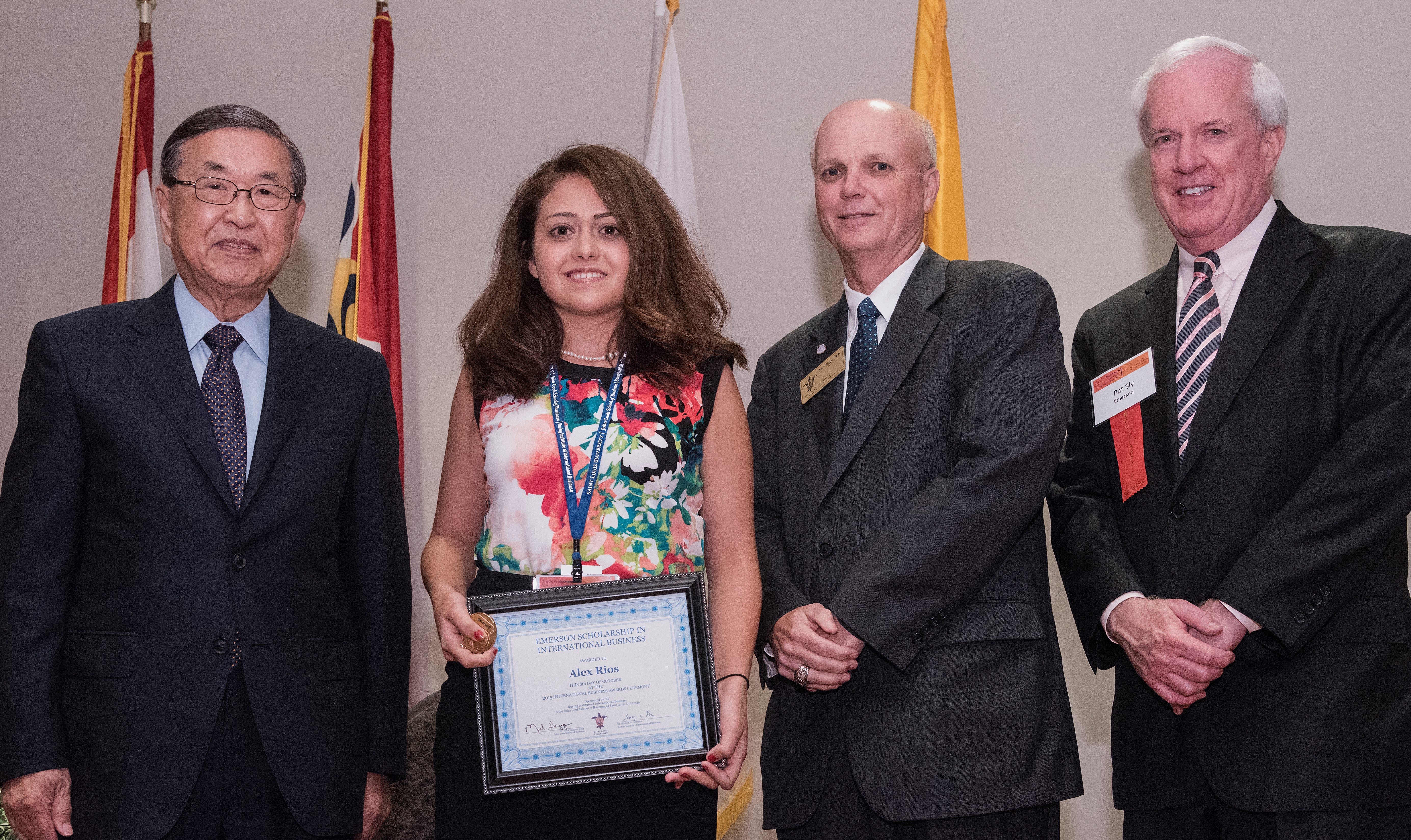
Alejandra Rios
 The thought of permanently leaving one's country is quite daunting. It’s not something that many people have to experience; however, with humanitarian crises throughout the world, more and more people must leave their homes and make the long and difficult journey to a new country.
The thought of permanently leaving one's country is quite daunting. It’s not something that many people have to experience; however, with humanitarian crises throughout the world, more and more people must leave their homes and make the long and difficult journey to a new country.
Alejandra Rios was born and raised in Guadalajara, Mexico with her parents and siblings. Her dad, a U.S. permanent resident, had previously worked in the U.S. while he was young doing labor-intensive jobs such as picking strawberries and working in factories. Eventually, he settled down in Mexico when he married Alejandra’s mom and that is where they decided to start their family. They decided to live in her dad’s hometown, which was a small, rural area in Mexico. Sadly, her mom became very sick due to the environment where they lived and they decided to resettle in Guadalajara, Mexico. Her father had a difficult time finding work in this new city so he moved back to his hometown and would come to visit Alejandra and her siblings every other weekend. This lasted for one year until her dad decided that the best way to keep the family together and to have more opportunities would be to move to the U.S.
“My father moved to Aurora, IL where he had some family. The first thing he did was to enroll in ESL classes and began working to get the rest of the family with him. He would visit us at least every year for a few days. We all looked forward to Sunday mornings because that was the only day when we were able to talk with him”.
In 2004, Alejandra and her family finally received the news that their application had been approved. During the first week of January in 2005, Alejandra and her family began the journey to their new home.
“I could only bring one small bag with me filled with clothes. Everything else was deemed unnecessary by my parents, including all my toys, books, and 8-month old puppy. I didn’t really understand what was going on and why we had to do things a certain way”.
Their journey began by taking a bus form Guadalajara to Ciudad Juarez to go through a multi-day process of getting final approval for permanent residency in the U.S. After several consecutive days of waking up before the sun came out to get in line so that they could get medical exams, interviews, and their paperwork approved, they were finally cleared to cross the border.
“I remember getting in a taxi and driving across the border and arriving at the airport. This was my first time encountering English speakers and my first time on a plane. When our plane finally landed in O’Hare airport in Chicago, I was so happy but extremely tired. The flight took longer than expected because there was a huge snowstorm that night. When our plane finally landed in O’Hare airport in Chicago. I fell asleep during the drive to our new home from the airport and this is one of my biggest regrets because I really enjoy observing my surroundings”.
When Alejandra woke up the next day, she was in for quite a shock:
“The next morning was my first time ever seeing snow. I remember playing in the snow, which was up to my knees, with my siblings. We only lasted 10 minutes outside since we had never been exposed to such low temperatures”.
The next few weeks were increasingly difficult for Alejandra and her family. Her brother was the only one placed in a bilingual classroom right away. Alejandra and her sister were placed in English speaking classrooms at first until they could be enrolled in a bilingual program within the same school district.
“We all learned English fairly quickly. I was in a completely non-bilingual program by the time I was in 7th grade and by 8th grade I was taking advanced math and science classes and even learning French. My biggest struggle with being in school in the U.S. was all of the language and culture barriers that I had to cross. The easiest way for me to handle these differences was to separate my home and school lives. At home, we strictly spoke only Spanish and in school, English and French. I made my mom pack me an American-style lunch so that I could fit in more with my peers”.
When the time to apply for college came around, Alejandra found another cultural divide from her parents and family in Mexico. Her older sister didn’t encounter these same problems because she chose to study at a university close to home. Alejandra wanted something different than her sister. She dreamed of studying at a state school somewhere on the east coast. Her parents had a hard time understanding why she wanted to go so far away. Alejandra ended up not attending any of the schools where she was initially accepted because of the pressure from her parents and extended family. This is when Alejandra made the decision to go to Saint Louis University. Her parents wanted her to focus on cities that were close to Aurora while Alejandra wanted a diverse university and SLU seemed to be the perfect fit.
“Since I’ve been in college, I’ve changed my major several times because I also felt pressure from my parents to do something that they feel will hold a better future for me. I started with athletic training, and then added physical therapy. I eventually switched to business marketing and ultimately decided upon international business, economics, and international studies".
Since her arrival in St. Louis, Alejandra has been enjoying all that our city has to offer. She loves going to different museums, festivals, and Forest Park.
“I really like that St. Louis is smaller than other cities because the smaller communities are more close-knit and it is easier to connect with people because there is always someone who knows someone who knows someone. Networking is easier”.
Besides being involved in the International Business Club and the Model United Nations at St. Louis University, Alejandra is currently interning at the St. Louis Mosaic Project as the Latino outreach assistant intern. 
“The Mosaic Project is important to me because it is making St. Louis more inclusive and welcoming. Having been a child immigrant allows me to connect to other immigrants that moved to the U.S. from a young age. With my experiences as an immigrant, I have always been fascinated by cultures different than mine. SLU and the Mosaic Project have helped me connect to all kinds of people that come from all over the world”.
